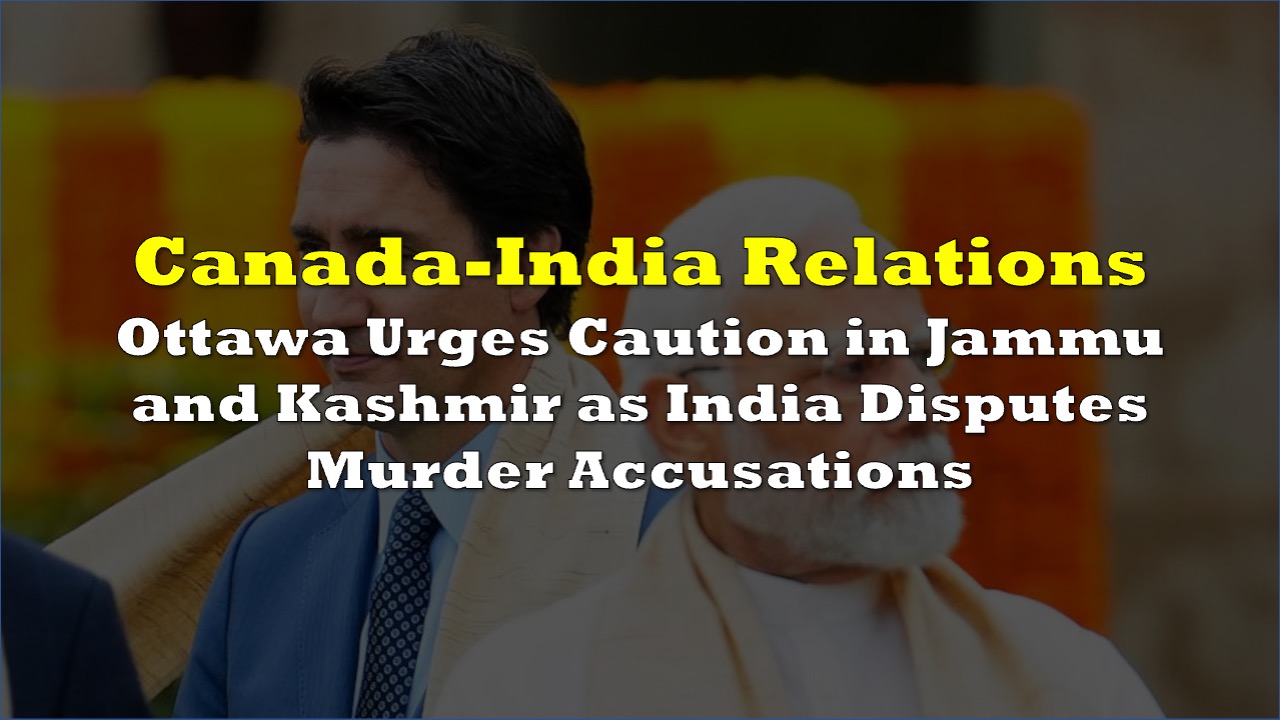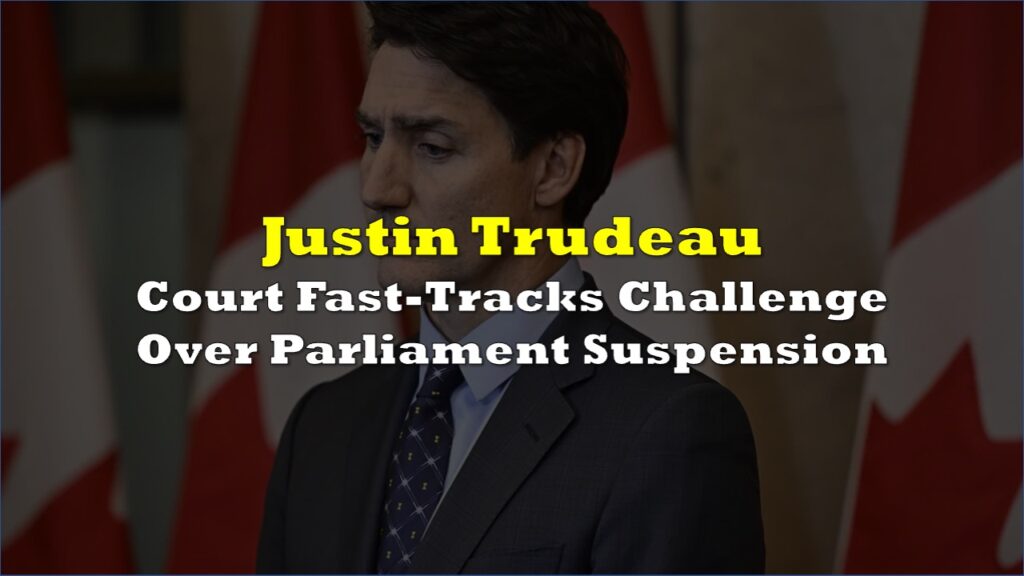The Canadian government on Tuesday updated its travel advisory to India, urging its citizens to avoid all travel to the Union Territory of Jammu and Kashmir.
The advisory cites an “unpredictable security situation,” citing threats of terrorism, militancy, civil unrest, and kidnapping. However, it excludes travel to or within the Union Territory of Ladakh.
Travel advisory to India 🇮🇳
— Geoeconomic🇨🇦 (@geoeconomic10) September 19, 2023
Updated to exercise a high degree of caution. https://t.co/EtPyXhCLKV pic.twitter.com/tU9sdRNNW4
This move follows Canada’s allegations that the Indian government may have been involved in the killing of Khalistan extremist Hardeep Singh Nijjar in June.
Canada has asserted “credible allegations” that agents linked to New Delhi were responsible for Nijjar’s murder, which occurred in front of a Sikh cultural center in a Vancouver suburb. This accusation has strained diplomatic relations between the two nations.
Canadian Prime Minister Justin Trudeau has called for India to treat these allegations with “utmost seriousness.” Canada’s stance on the matter led to the expulsion of the top Indian intelligence official from Canada. Just hours later, a senior Canadian diplomat was also expelled from New Delhi.
#WATCH | Ottawa: Prime Minister of Canada Justin Trudeau says, "The government of India needs to take this matter with the utmost seriousness. We are doing that, we are not looking to provoke or escalate, we are simply laying out the facts as we understand them and we want to… pic.twitter.com/NyJbdxVJm6
— ANI (@ANI) September 19, 2023
Prime Minister Trudeau clarified that Canada’s intentions are not to provoke or escalate tensions with India but to present the facts as they understand them.
Meanwhile, India has expressed its growing concern over the interference of Canadian diplomats in its internal matters and their involvement in what they term “anti-India activities.” The Indian government considers any foreign government’s involvement in the killing of a Canadian citizen on Canadian soil as an infringement on its sovereignty.
India rejects allegations by Canada:https://t.co/KDzCczWNN2 pic.twitter.com/VSDxbefWLw
— Arindam Bagchi (@MEAIndia) September 19, 2023
This recent dispute further strains bilateral relations between India and Canada, which were already strained due to the activities of pro-Khalistan elements in Canada, including advocating for a separate homeland for Sikhs, targeting Indian diplomatic premises, and inciting violence against top Indian officials.
Nijjar’s death in June sent shockwaves through the Sikh community in Canada, one of the largest outside India, with over 770,000 members.
In response to Trudeau’s comments regarding India’s potential involvement in Nijjar’s murder, two prominent Sikh community groups in Canada — the British Columbia Gurdwaras Council and Ontario Gurdwaras Committee — have jointly urged the Canadian government to suspend all intelligence, investigative, and prosecutorial cooperation with India. They emphasize the gravity of India’s alleged role in Nijjar’s “premeditated murder.”
Nijjar was an outspoken advocate of the creation of a separate Sikh homeland known as Khalistan, which would include parts of India’s Punjab state. The movement has been banned in India and a number of groups associated with it have been listed as “terrorist organizations” under India’s Unlawful Activities (Prevention) Act (UAPA).
Nijjar’s name appeared on the Home Ministry’s list of UAPA terrorists, and in 2020, the Indian National Investigation Agency accused him of attempting to radicalize the global Sikh community in favor of Khalistan, inciting secession, and promoting violent activities.
According to Nijjar’s friend and former lawyer, Gurpatwant Singh Pannun, Canadian authorities, including the Royal Canadian Mounted Police, had warned Nijjar at least three times about threats to his life.
The strained relations between Canada and India are unlikely to ease following these allegations. Harsh Pant, vice president of foreign policy at the Observer Research Foundation, referred to the situation as “quite extraordinary” and expressed doubts about a swift resolution.
Negotiations for a trade deal between the two countries have been halted due to “serious concerns” on India’s part.
Read: Saskatchewan Accuses Trudeau of Damaging India Relations and Trade Talks
Additionally, Indian Prime Minister Narendra Modi’s decision to meet Trudeau on the sidelines of the G20 summit rather than one-on-one reflects the Indian government’s concerns regarding anti-India activities in Canada.
However, some experts believe that the relationship remains salvageable, given Canada’s significant investments in India and the presence of a large Indian diaspora in Canada. Michael Kugelman, director of the South Asia Institute at the Wilson Center, noted that people-to-people relations between the nations remain strong.
In response to Canada’s allegations, key allies like the United States, the United Kingdom, and Australia have expressed concern. The White House has urged Canada to proceed with its investigations, emphasizing the importance of bringing the perpetrators to justice. Australia has voiced deep concern, acknowledging the significance of the Indian diaspora in their multicultural society. The UK has also supported Canada’s investigative efforts while awaiting the results of their inquiry.
Information for this story was found via CNN, Hindustan Times, and the sources and companies mentioned. The author has no securities or affiliations related to the organizations discussed. Not a recommendation to buy or sell. Always do additional research and consult a professional before purchasing a security. The author holds no licenses.









